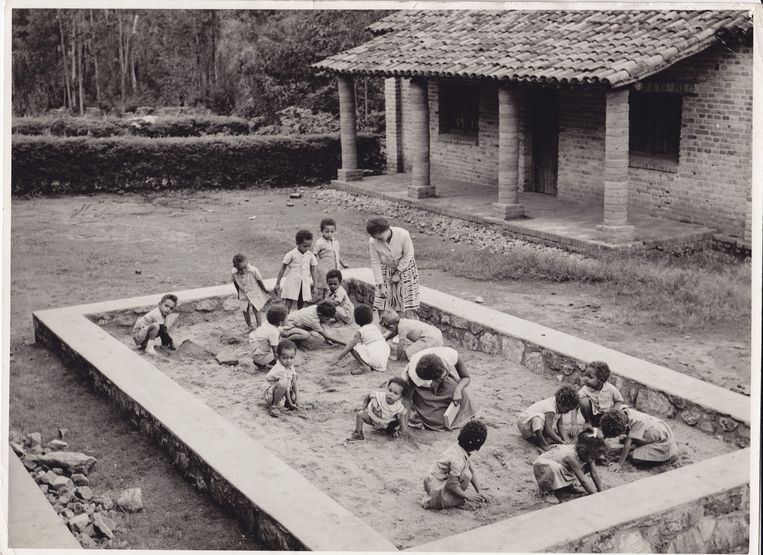Nadia Nassai is a political scientist and author Daughter of decolonization.
Simone Ngalula, Lia Tavares Mugenga, Monique Beto-Bengy, Noel Verbeken and Marie-José Luci. In October, these five women attended Belgian in court. The seventies found the courage to denounce Belgium after sixty years of facts. As children who were not recognized by their fathers, they were taken from their mothers, placed in religious institutions and kidnapped to Belgium. Their identity was taken from them. why? Because they were children of “mixed race”.
This week, the civil court in Brussels acquitted the Belgian state in the “Métis case”. The judge acknowledges the women’s suffering, but does not consider what happened to them a crime against humanity. Moreover, the facts are obsolete.
The five women symbolize what thousands of Métis went through when the Congo was still a Belgian colony. Their stories must be placed in a broader context to understand just how racist the colonial system was. The term “metis” refers to children of mixed parents. In the colony were the sons and daughters of white men and colonists and black women. Many of these children were not recognized by their father. It’s hard to know how many Metis there are. But what is certain is that they were a problem for the Belgian colonial government. In a highly segregated society, the Metis were the sons of Sin. Visual evidence of the intimate connection between the “white superior race” and the “inferior black race”.
A few years ago I found the file of my grandfather’s colonial official in the Belgian Congo in the colonial archives of the Ministry of Foreign Affairs. I read in black and white how controversial the existence of his eldest son, my father, was. This week I once again realized the importance of acknowledging my father. This recognition means that today I can access the history of my Belgian family. I know my grandfather’s name. I can refer to his colonial profile. Many unrecognized Métis and their offspring cannot. They have been cut from their family tree.
On a human level, the court ruling is a disgrace. However, it is important not to approach recovery only from a legal point of view. Recovery also deserves a political dimension. In 2019, former Prime Minister Charles Michel apologized on behalf of the Belgian state. But saying sorry is not enough. Prime Minister Alexandre de Croo could institute a recovery policy independent of governance and on the fringes of the Congolese Parliamentary Committee to mitigate the intolerable effects of colonial injustice. According to justice, injustice can become prohibited by law, but injustice does not end in a person’s life.

“Total coffee specialist. Hardcore reader. Incurable music scholar. Web guru. Freelance troublemaker. Problem solver. Travel trailblazer.”







More Stories
GALA lacks a chapter on e-health
Weird beer can taste really good.
Planets contain much more water than previously thought